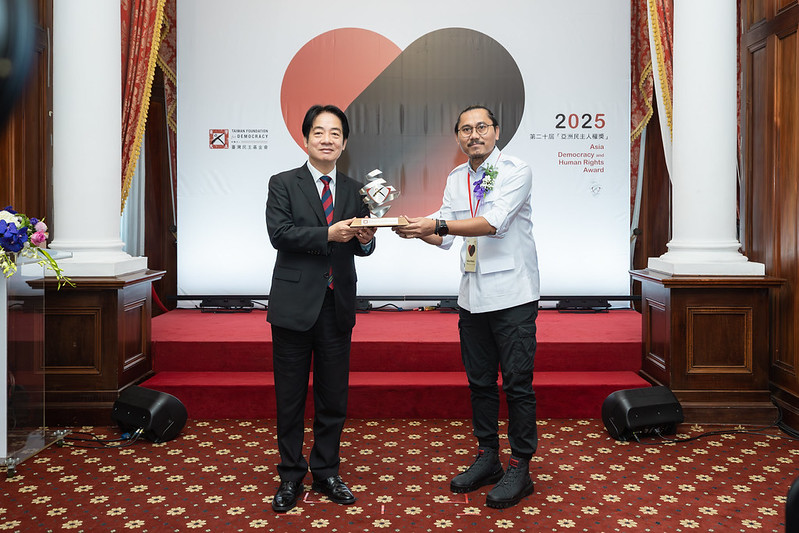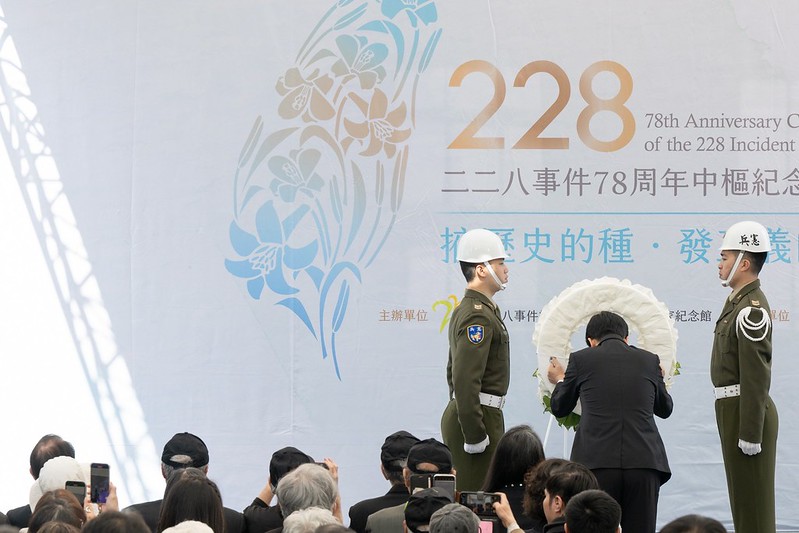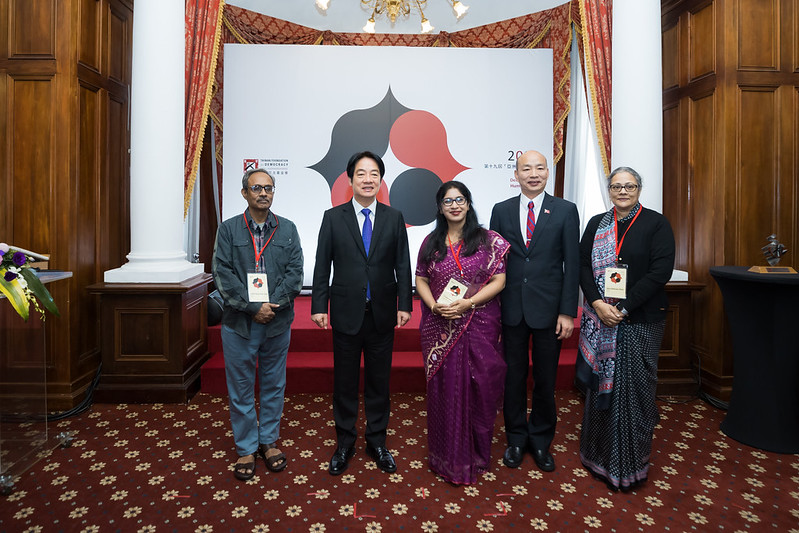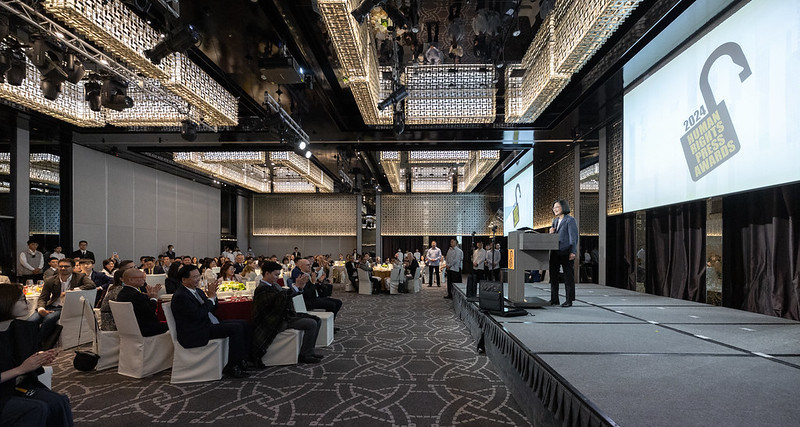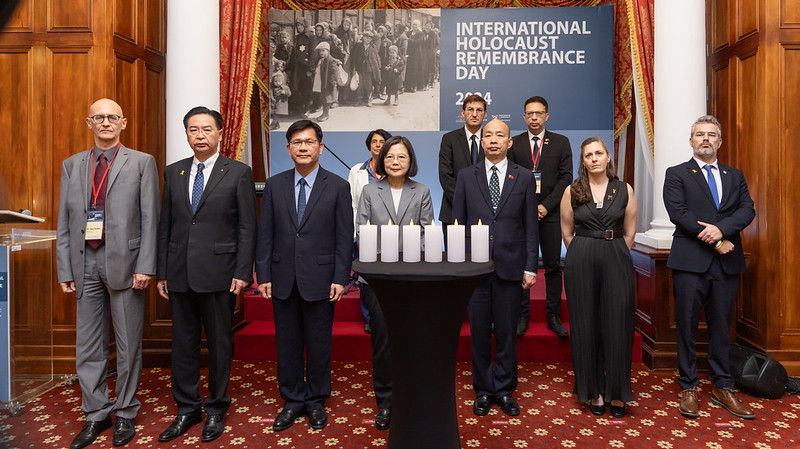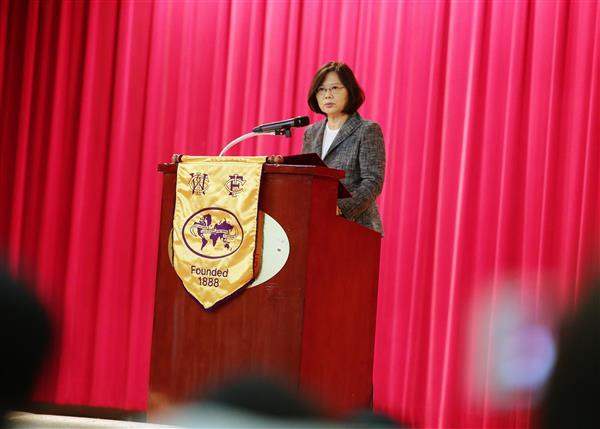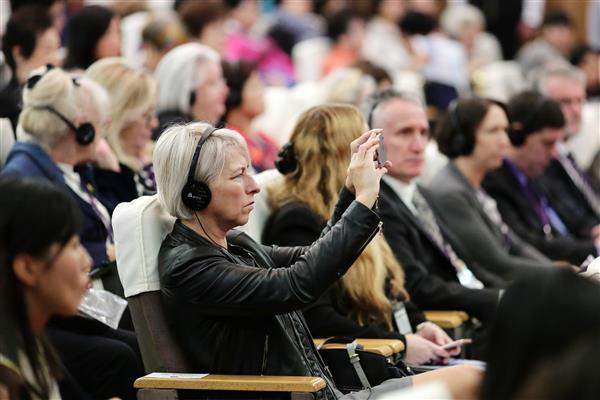News & activities
 News releases
News releases
On the morning of November 14, President Tsai Ing-wen attended the Executive Committee Meeting of the International Council of Women (ICW), where she spoke about concrete measures that Taiwan has taken to promote women's rights, and successes that have been achieved. She also expressed hope that Taiwan in the future can work together with the international community to further implement women's rights.
In remarks, President Tsai noted that the ICW has been an important force for worldwide promotion of gender equality and women's participation in public affairs ever since the organization was founded in the 19th century. The National Council of Women of Taiwan, R.O.C. (NCW), which became an ICW member in the 1990s, works together with government entities and non-governmental organization (NGOs) around the world to promote women's empowerment and improve the lives of underprivileged women and children. "We have already achieved many successes," said the president, who nevertheless added that "we still have a long way to go achieve true equality and justice."
President Tsai further pointed out that after more than a century of struggle, the concept of gender equality has gradually become accepted as a universal value, but further effort will be needed to make it an actual reality in everyday life and at the workplace.
President Tsai mentioned that the United Nations earlier this year adopted a set of 17 Sustainable Development Goals (SDGs), the fifth of which is to achieve gender equality. In addition, women's issues are included as focal points of Goal 1 (no poverty), Goal 4 (quality education), and Goal 11 (sustainable cities and communities). In other words, to achieve sustainable development, gender structure must also be transformed. There is now an important global consensus on the need to expand women's policy participation and support women's empowerment.
The president believes that the power of governments and civil society throughout the world should further coalesce on the gender quality agenda, stating that "this is the significance of our gathering here today." We should increase exchanges, enhance cooperation, and continue promoting women's leadership as well as women's education and health. We also need to work together to oppose gender discrimination and sexual violence, added the president, who voiced confidence that Taiwan can use its experience to contribute to the next phase of the global women's movement.
Turning to the topic of efforts and accomplishments by the Taiwan government in promoting women's rights, President Tsai pointed out that gender mainstreaming is one of our government's policy objectives. Taiwan has already completed its second report on the Convention on the Elimination of All Forms of Discrimination against Women (CEDAW), so we are among those Asian nations making the fastest progress toward gender equality. In addition, Taiwanese society encourages and supports women's involvement in public affairs. Women account for one-third of the current membership of the national legislature, for example, and women serve as city council speaker in half of Taiwan's six major metropolitan areas. And of course, she herself, as a female president, is the best example of all.
President Tsai stated that having a female president does not mean that Taiwan from now on will have no further gender equality problems. In fact, there is still a salary gap between men and women in Taiwan, and there are still many women here who have to choose between family and career. In addition, the labor force participation rate drops off sharply for women after they reach the age of 35. This is a loss to the country, so the government has made it a key policy objective to increase women's labor force participation rate.
President Tsai stressed that Taiwan will actively enforce legal protections for women's right to work and to enjoy workplace safety. Also, a three-pronged policy of promoting childcare services, a long-term care system, and women's employment is being pursued to support women. This approach will establish support systems for home care and relieve women of the excessively heavy burden of home care that they have typically had to bear.
The president also stated that Taiwan has launched a pilot project for community-based long-term care, and has begun to expand public education and care for infants and children. At the same time, the government is encouraging companies to provide childcare facilities so that employees can work with peace of mind. All these undertakings help to alleviate the stresses faced by women so that they will have greater leeway to plan out their careers.
The president also pointed out that women's potential and talents should not be squelched, and said that she hopes to use policy guidance to gradually loosen up the existing structure of society so that women can have greater opportunity to participate equally in social, economic, and political development. And in order to establish a more just and more sustainable global society, Taiwan is willing to demonstrate a progressive attitude regarding women's issues, and to take pragmatic action. The president said she hopes that participants in the ICW Executive Committee Meeting will continue to support Taiwan in its efforts to take part in international work on women's rights. "Let's work on this together," stated the president.
Among those attending the event were ICW President Jungsook Kim, NCW Honorary President Cecilia Y. Koo (辜嚴倬雲), NCW President Linda Liu (劉怜君), and ROC Deputy Foreign Minister Wu Chih-Chung (吳志中).
